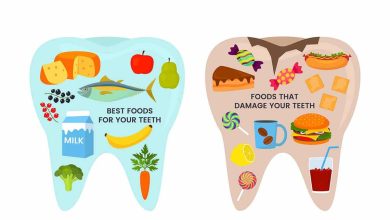Difference between an Eye Exam & Contact Exam?

What is the difference between an eye exam and a contact exam?
When it comes to caring for your eyes, it’s important to know the difference between an eye exam and a contact exam. An eye exam is a comprehensive test that checks your eyes for vision problems, eye health issues, and other problems. A contact exam, on the other hand, is a check-up for your contact lenses exam.
If you wear contact lenses, you should have a contact exam at least once a year. During a contact exam, your optometrist will check the fit, placement, and health of your contacts. They will also examine your eyes to make sure they are healthy and free of infection.
If you do not wear contact lenses, you should still have an eye exam at least once every two years. An eye exam is the best way to screen for vision problems and other eye health issues.
When most people think of getting their eyes checked, they think of an eye exam. However, sometimes people need to have their contacts checked rather than their eyes. So, what is the difference between an eye exam and a contact exam?
An eye exam is a comprehensive check of your eyesight that includes testing how well you see both near and far, checking the health of your eyes, and measuring the pressure inside your eyes. A contact exam is a check of how well your contacts fit and how comfortable they are. It also includes a review of your contact lens prescription.
If you wear contacts, it’s important to have both an eye exam and a contact exam every year to keep your eyes healthy and your contacts fitting comfortably.
Do you need an eye test for contact lenses?
When you’re getting fitted for contact lenses, your optometrist will do a variety of tests to make sure the lenses are the right fit for your eyes. But do you need an eye test for contact lenses?
The answer is no – you don’t need an eye test for contact lenses. Contact lenses are a medical device, and as such, they must meet certain safety and quality standards. The Food and Drug Administration (FDA) sets these standards, and they’re updated regularly.
Your optometrist will make sure that your contact lenses meet the latest FDA standards. In addition, your optometrist will also make sure that you’re using your contact lenses safely and effectively.
If you have any questions or concerns about your contact lenses, be sure to talk to your optometrist. One of the most common questions we get is whether or not you need an eye test for contact lenses. The answer, unfortunately, is a bit complicated.
To start with, you do not technically need an eye test to get fitted for contact lenses. However, it’s always a good idea to go in for an eye exam before getting fitted for contacts, to make sure that your eyes are healthy and that you’re a good candidate for contacts.
If you have never worn contacts before, or if you have worn them in the past but stopped using them, it’s especially important to get an eye exam before getting fitted for contacts again. This is because your vision may have changed since you last wore contacts, and you may need a different prescription now.
What do they do during a contact lens exam?
A contact lens exam is an important part of your eye care. During the exam, your optometrist will check your eyes for problems and assess your ability to wear contact lenses.
The following is a summary of what to expect during a contact lens exam.
- Vision Test
Your optometrist will perform a vision test to check how well you see both near and far. The test uses an eye chart, which is a series of letters that are arranged in various sizes. Your optometrist will review the chart with you, and ask you to read the letters and identify the numbers.
For your vision to be tested properly, you need to sit still and look straight ahead at a specific spot on the chart. You can read the chart by looking at a mirror, but it’s not recommended.
- Eye Health
Your optometrist will also check your eyes for problems. They will look for redness and irritation, which can occur if your eyes are sensitive or if your contact lenses are dirty.
- Contact Lens Fit
Before fitting you with lenses, your optometrist will examine your eyes and your contact lenses to make sure they’re the right fit for you. During the exam, you’ll lie down on a table, and your optometrist will check the placement and size of your lenses. They’ll also check the fit and comfort of your lenses so that they feel right. If you’re using traditional or soft lenses, your optometrist may recommend a trial period.
- Contact Lens Health
Your optometrist will also examine your eyes to see if they are healthy and free from infection. They will also check to make sure your contact lenses are clean and haven’t been altered with a sharp instrument.
- Contact Lens Prescription
Your optometrist will check your prescription to make sure it’s correct. They’ll also check your lenses to make sure they’re correctly fitted and are still suitable for your eyes.
What can they find during an eye exam?
During a comprehensive eye exam, your optometrist will check your eyes for vision problems and other problems. They’ll also check your health and eye health, and review your eye prescription.
They’ll be able to tell you if you have any eye problems that may be causing your vision to be blurred or distorted. And they’ll be able to tell you if you’re a good candidate for contacts.
If you wear contact lenses, your optometrist will also make sure that your contact lenses are the right fit for your eyes. You may need a trial period to make sure they’re a good fit. If you wear glasses, your optometrist will also be able to perform a comprehensive eye exam. They’ll be able to tell you if your eyes need glasses, and if you’re a good candidate for new glasses.





